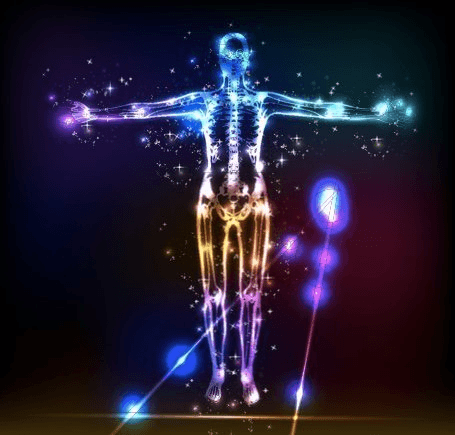You Are Not a Victim of Your DNA

Thanks to the groundbreaking work of scientists like Rupert Sheldrake and Bruce Lipton, we know now that we aren’t relegated to the DNA traits of our parents, or even of our ancestors.
Stem cell biologist Bruce Lipton, Ph.D., described the important difference between genetic determinism and epigenetics in an interview with SuperConsciousness magazine:
“The difference between these two is significant because this fundamental belief called genetic determinism literally means that our lives, which are defined as our physical, physiological and emotional behavioral traits, are controlled by the genetic code. This kind of belief system provides a visual picture of people being victims: If the genes control our life function, then our lives are being controlled by things outside of our ability to change them. This leads to victimization that the illnesses and diseases that run in families are propagated through the passing of genes associated with those attributes. Laboratory evidence shows this is not true.”
Joining Lipton is his assertion is Carlo Ventura, M.D., Ph.D., professor and researcher at the University of Bologna in Italy. He has proven that coherent sound waves, water, or electromagnetic fields can reprogram our DNA! Ventura states,
“It’s like a time machine. You’re reprogramming somehow backward with these cells to an uncertain state in which any kind of decision is somehow possible; even the decision to become virtually any kind of cell of the organism. And just think about the tremendous potential of this discovery.”
Then we have the research of British biologist, Rupert Sheldrake, on morphogenetic fields chiming in. IN an interview Sheldrake stated recently,
“Morphic resonance is the influence of previous structures of activity on subsequent similar structures of activity organized by morphic fields. It enables memories to pass across both space and time from the past. The greater the similarity, the greater the influence of morphic resonance. What this means is that all self-organizing systems, such as molecules, crystals, cells, plants, animals and animal societies, have a collective memory on which each individual draws and to which it contributes. In its most general sense this hypothesis implies that the so-called laws of nature are more like habits.”
So, What Does All This Tell Us About Our Genes?
This is all great news because our genes are only ever expressing what we’ve believed thus far. Our beliefs reflect our genetic conditioning; they don’t determine our future outcomes. That’s what the scientists are talking about when they say “genetic determinism.” That’s a dying scientific theory because it simply isn’t true!
We can change our DNA, by using the “epi” in epigenetics. This root word comes from the Greek meaning “above” or “over.”
We get “over” our parents’ proclivity toward breast cancer or heart disease. We rise “above” generations’ long tendencies toward anger and fear (which cause our disease) by ALTERING OUR GENES WITHOUT CHANGING THEIR SEQUENCE.
You see, the little treasures in so called, “junk” DNA, hold the key. scientists were quick to dismiss this stuff which they knew little about, until more recently. Our genome devotes much more time and energy to regulate gene expression in our DNA rather than just code proteins in them to make sure we are indeed human instead of an ape or a tsetse fly.
The “junk” in our DNA tells it how to behave. It tells it to feel free and happy, or to sink into the pits of depression. And here’s the beauty that sets us free from being stuck in old patterns and old disease: WE HAVE THE POWER TO CHANGE OUR OWN DNA.
You can so it with just the thoughts you think, and the environment you surround yourself with. You can do it by laughing more often, and looking for the positive in every situation. You can change your DNA by the foods you choose, and the music you listen to. It’s all up for grabs!
Lipton explains in an article,
“When we have negative emotions such as anger, anxiety and dislike or hate, or think negative thoughts such as ‘I hate my job,’ ‘I don’t like so and so’ or ‘Who does he think he is?’, we experience stress and our energy reserves are redirected.
This causes a portion of our energy reserves, which otherwise would be put to work maintaining, repairing and regenerating our complex biological systems, to instead confront the stresses these negative thoughts and feelings create.”
Conversely, when we think good thoughts, or find joy in every-day life, or express gratitude – we change our cellular organization. NO victim here!











